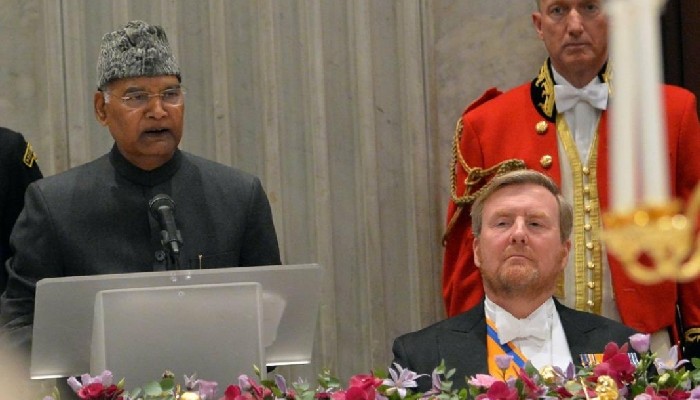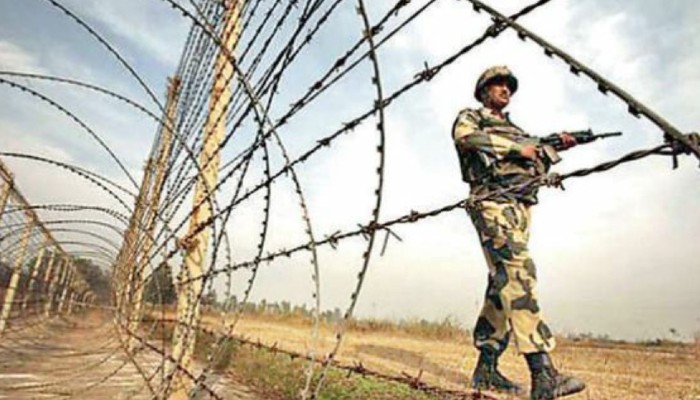Govt highlights Kashmir normalcy by allowing prayers at Grand Mosque
On December 18, J&K Government reopened Srinagar’s Grand Mosque for prayers first time since the nullification on August 5 of Article 370 which granted the state turned union territory a semi-autonomous status within Indian Union. The prayers at the historic mosque have passed peacefully since. There were no protests even during large congregation on Friday.
This may also be because the prayers have been attended by a small number of worshippers, a significant number of them elderly people. This was the situation on Friday also, when the gathering comprised of less than ten rows. On normal Fridays when Hurriyat chairman Mirwaiz Umar Farooq delivers a sermon there, not only is the expansive hall filled to the standing room capacity, even the large open space outside is occupied by worshippers. People from all over Srinagar and also from the nearby villages travel to the mosque to be part of the massive congregation and chiefly to hear sermons of Mirwaiz. But not so on last Friday.
But this did allow the government to symbolically project to the country that Kashmir is normal. The visuals of the peaceful prayers at one of Kashmir’s prominent places of worship
became a major news in the local and international media. And that too at a time, when scenes of furious protests are ongoing across the country against the newly enacted Citizenship Amendment Act.
Government has a reason to be happy. Grand Mosque is the traditional turf of the powerful Mirwaiz family where the successive Mirwaizs (chief preachers of Kashmir) — the current Mirwaiz is the fourteenth in the line — have been delivering Friday sermons and leading the prayers on the day.
Besides, the mosque has also served as a political platform, more so in the past three decades. The mosque’s location in the heart of Srinagar city also helps as it gives the Mirwaiz family a political edge over every other political party in the state. And this is why the government's decision to bar Mirwaiz from leading the Friday prayers is not only a religious infringement for him but also an assault on his political constituency.
Though primarily concerned with propagating and preaching the religion, the institution of Mirwaiz has transformed over the past century. Mirwaiz has now acquired a pronounced political role. It was Molvi Yusuf Shah, the grand uncle of the present Mirwaiz, who in the early twentieth century was the first to involve himself in the political struggle against the then autocratic Dogra rule.
His successor Molvi Farooq, also the father of current Mirwaiz, was an influential political leader who floated a party Awami Action Committee which fought elections and through eighties emerged as a vaunted opposition to the National Conference. After his assassination in 1990, Umar Farooq became the new Mirwaiz of Kashmir and subsequently the first chairman of the separatist conglomerate Hurriyat Conference. He is now the most influential separatist leader in Kashmir, together with Syed Ali Shah Geelani, head of Tehreek-i-Hurriyat. Both have been under house arrest since August 5.
It remains to be seen how congregations at the mosque will behave during upcoming Fridays. Government has so far succeeded in maintaining a tight control over the prayers. It continues to disallow Mirwaiz to lead the prayers. But a potential large gathering is likely to make things difficult. Situation has every chance of flaring up into a protest.
In the past, the post-prayer clashes at the grand mosque have been a trigger for protests in Kashmir. During 2008 and 2009 unrests, which between them led to killing of more than a hundred people, the protests first broke out in downtown areas surrounding Grand Mosque and radiated outside. But in 2010 and 2016, the unrest spread in the Valley from rural areas. So, the government is exercising extreme caution. Despite the passage of five months, the internet gag remains in force. But permitting prayers at Grand Mosque is the first sign that the authorities are confident of their grip on the situation.
(Courtesy: Tehelka)
 Contact Us
Contact Us  Subscribe Us
Subscribe Us









 Contact Us
Contact Us
 Subscribe
Subscribe
 News Letter
News Letter

